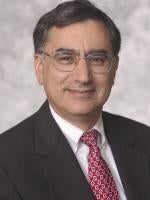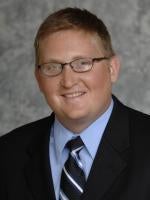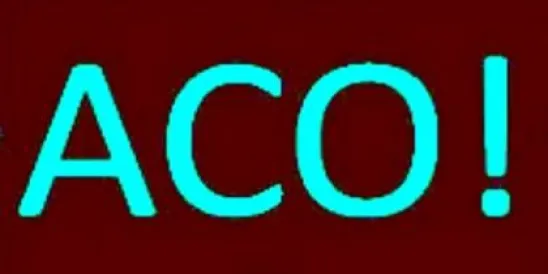The Patient Protection and Affordable Care Act, enacted last year, establishes a Medicare Shared Services Program to be implemented no later than January 1, 2012. The purpose of the Program is to improve “value” in the Medicare program and to achieve three goals: better health; better care; and lower cost. As part of the Program, the Secretary of the United States Department of Health and Human Services (HHS) is authorized to enter into agreements with Accountable Care Organizations (“ACOs”) to participate in the Program.
An ACO is a network comprised of healthcare providers, including primary care physicians and specialists, that agrees to coordinate and take responsibility for the complete healthcare needs of a specified Medicare patient population. Such networks might consist of single or multi-specialty physician groups, hospitals, or any combination of the foregoing. Under the Program, an ACO will continue to be reimbursed by Medicare through the traditional fee-for-service method, but to the extent that it is able to generate savings for Medicare as compared to benchmarks established for its assigned patient population, and it meets certain quality performance standards, it will be eligible to share in a portion of the savings that it produces. It is the expectation that ACOs will help foster a new approach to delivering care to Medicare beneficiaries that reduces fragmented or unnecessary care and reduces excessive costs.
The Act also gave the Secretary of HHS the authority to waive any requirements of the Physician Self-Referral Law (42 U.S.C. §1395nn) (the “Stark Law”), the Anti-Kickback Statute (42 U.S.C. §1320a-7b(b)) and the gainsharing civil monetary penalty (the “Gainsharing CMP”) that may be necessary to carry out the provisions of the Program. On March 31, 2011 the Centers for Medicare & Medicaid Services (CMS) and the Office of Inspector General (OIG) of HHS placed on public display a joint notice with comment period (the “Notice”) proposing waivers of the Stark Law, the Anti-Kickback Statute, and the Gainsharing CMP in connection with certain arrangements involving ACOs. The Notice was published in the April 7, 2011 Federal Register (76 Fed.Reg. 19655). The purpose of these waivers, as stated in the Notice, is to assure that “… the [fraud and abuse] laws do not unduly impede development of beneficial ACOs, while also ensuring that ACO arrangements are not misused for fraudulent or abusive purposes that harm patients or Federal health care programs.”
CMS and the OIG point out in the Notice that their waiver authority under the Act is specific to the Program and does not apply to other similar integrated-care delivery models. Therefore, in order to qualify for any of the proposed waivers there are two threshold qualifications: (1) the ACO is required to enter into an agreement with CMS to participate in the Program; and (2) the ACO, ACO participants, and ACO providers/suppliers are required to comply with that agreement, the provisions of the Act relating to the Program, and its implementing regulations. The terms “ACO participants” and “ACO providers/suppliers” are defined in the proposed rule regarding ACO requirements that CMS also published in the April 7th Federal Register (76 Fed. Reg. 19528).
Proposed Stark Law Waiver
The proposed waiver of the Stark Law is only applicable to the distribution of shared savings received by an ACO from CMS under the Program either: (1) to or among ACO participants, ACO providers/suppliers, and individuals and entities that were ACO participants or ACO providers/suppliers during the year in which the shared savings were earned by the ACO; or (2) for activities “necessary for and directly related to” the ACO’s participation in and operation under the Program. CMS and the OIG state in the Notice that this proposed waiver is intended to protect financial relationships created by the distribution of shared savings within and outside the ACO, but only if the distribution outside the ACO “relates closely” to the requirements for an ACO under the Act. Further, it is not their intent to protect distributions of shared savings to referring physicians outside the ACO unless those referring physicians are being compensated with shared savings for activities “necessary for and directly related to” the ACO’s participation in and operation under the Program. CMS and the OIG also make it clear in the Notice that the proposed waiver of the Stark Law is limited in scope to only distributions of shared savings, and all other financial relationships involving physicians participating in an ACO would still need to satisfy an existing Stark Law exception.
Proposed Anti-Kickback Statute Waiver
The proposed waiver of the Anti-Kickback Statute is limited to two situations. The first situation is identical to the circumstances for a waiver of the Stark Law discussed above. The second situation applies to any financial relationship between or among the ACO, its ACO participants, and its ACO providers/suppliers “necessary for and directly related to” the ACO’s participation in and operations under the Program that implicates the Stark Law and fully complies with an exception to that law as set forth in 42 C.F.R. §§411.355-411.357. In the Notice, CMS and the OIG point out that while ordinarily compliance with a Stark Law exception does not immunize conduct under the Anti-Kickback Statute, in light of the safeguards proposed to be incorporated in the Program and their desire to minimize burdens on ACOs, they are proposing a limited exception to the general rule. CMS and the OIG also state in the Notice that failure to qualify for one of the Anti-Kickback Statute waivers does not mean that an ACO’s financial arrangement is automatically a violation of the Anti-Kickback Statute.
Proposed Gainsharing CMP Waiver
The proposed waiver of the Gainsharing CMP is also applicable to only two situations. The first situation is limited to distributions of shared savings received by an ACO from CMS under the Program where the distributions are made from a hospital to a physician if both (1) the payments are not made knowingly to induce the physician to reduce or limit medically necessary items or services; and (2) the hospital and the physician are ACO participants or ACO providers/suppliers when the distribution is made or were ACO participants or ACO providers/suppliers during the year in which the shared savings were earned by the ACO.
The second situation is limited to any financial relationship between or among the ACO, its ACO participants, and its ACO providers/suppliers “necessary for and directly related to” the ACO’s participation in and operations under the Program that implicates the Stark Law and fully complies with an exception to that law as set forth in 42 C.F.R. §§411.355-411.357.
Duration of Proposed Waivers
The waivers related to the distribution of shared savings would apply to distributions of shared savings earned by the ACO during the term of its agreement with CMS to participate in the Program, even if the actual distributions occur after the expiration of the agreement. However, the proposed waivers of the Anti-Kickback Statute and the Gainsharing CMP for arrangements that comply with an existing Stark Law exception would only apply during the term of the ACO’s agreement to participate in the Program and not after its expiration.
Additional Waivers
In addition to the limited waivers proposed in the Notice, CMS and the OIG are also soliciting comments on other, broader, waivers including: (1) arrangements related to establishing the ACO; (2) arrangements between or among ACO participants and/or ACO providers/suppliers relating to the ongoing operations of the ACO and achieving its goals; (3) arrangements between the ACO, its ACO participants, and/or its ACO providers/suppliers and outside individuals or entities; (4) distributions of shared savings or similar payments received from private payors; and (5) other financial arrangements for which a waiver would be necessary.
The public comment period ends on June 6, 2011, and the waivers proposed by CMS and the OIG in the Notice are subject to possible modifications based on the comments received.




 />i
/>i
